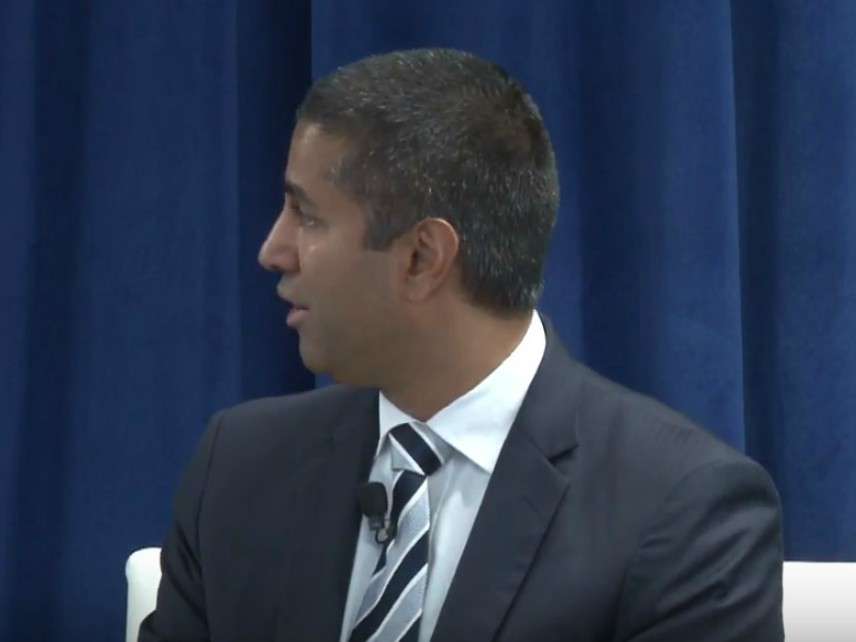'I Believe in the First Amendment,' Says FCC Chair, Rejecting Trump's Censorious Tweets
Ajit Pai notes that his agency has no authority to consider journalistic content in making license decisions.

Today FCC Chairman Ajit Pai, who pre-emptively repudiated Donald Trump's suggestion that TV stations should lose their broadcast licenses if their news reports offend him, reiterated his commitment to freedom of speech and emphasized that his agency has no authority to take journalistic content into account when making such decisions. Asked directly about the president's censorious tweets during a forum on telecommunications reform at George Mason University's Mercatus Center, Pai replied:
I believe in the First Amendment. The FCC under my leadership will stand for the First Amendment, and under the law the FCC does not have the authority to revoke a license of a broadcast station based on the content of a particular newscast.
Pai added that, notwithstanding Trump's argument that purveyors of "fake news" should be investigated by the government, such a role "has not been within the FCC's jurisdiction." He also criticized the so-called Fairness Doctrine, under which the FCC used to require that broadcast stations present contrasting views on controversial subjects. "It was an affront to the First Amendment to have the government micromanaging how much time a particular broadcast outlet decided to devote to a particular topic," he said.
Trump has raised the possibility of reviving the Fairness Doctrine, which the FCC abandoned in 1987. "Late Night host are dealing with the Democrats for their very 'unfunny' & repetitive material, always anti-Trump!" he tweeted on October 7. "Should we get Equal Time?" Four minutes later, he added, "More and more people are suggesting that Republicans (and me) should be given Equal Time on T.V. when you look at the one-sided coverage?" Trump used a question mark instead of a period, and he said "Equal Time" instead of "Fairness Doctrine," invoking a different rule that applies to competing candidates for public office. But you get the idea: If people on TV are saying things that make Trump look bad, the stations on which they appear should be forced to air rebuttals.
That proposal, like Trump's assertion that "licenses must be challenged and, if appropriate, revoked" in response to "partisan, distorted and fake" news coverage, is obviously anathema to the First Amendment. Pai, in his low-key, matter-of-fact manner, is commendably willing to say so, apparently as many times as it takes.
Addendum: On Sunday, another member of the FCC, Jessica Rosenworcel, beat Pai to the punch in responding to Trump's tweets about broadcast licenses. "History won't be kind to silence," the Democratic appointee said on CNN, "and I think it's important for all the commissioners to make clear that they support the First Amendment and that the agency will not revoke a broadcast license simply because the president is dissatisfied with the licensee's coverage."


Show Comments (22)